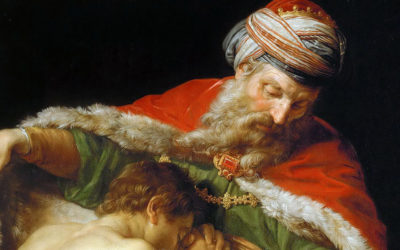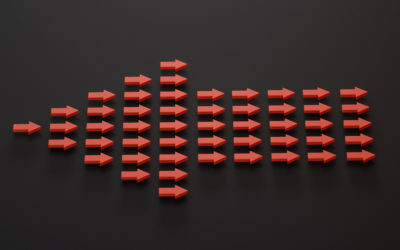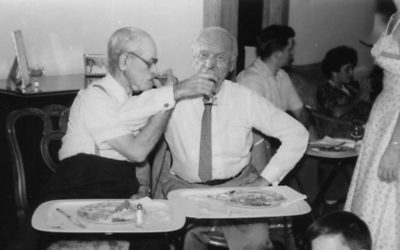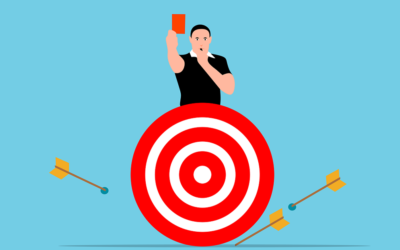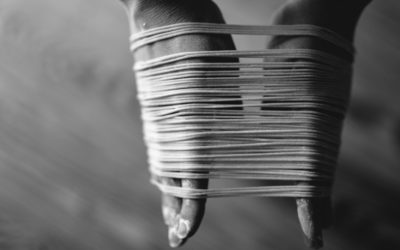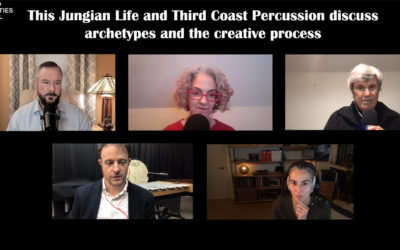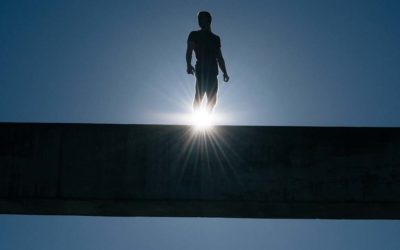The allegorical tale of the Prodigal Son illustrates Jung’s basic understanding of the structure and development of the psyche.
CAUSAL OR CREATIVE: Is History Destiny?
Apr 21, 2022
The Roman god Janus had two faces. They looked in opposite directions, representing dualities, especially beginnings and endings, past and future. Psychotherapy often begins by facing the past and understanding its influence on the present. Belief in the past as unalterably determinative, however, can imply that personal history is a single, all-powerful god—as if Janus fixed on yesterday. Jung took special interest in psyche’s purposive and creative energy—the face Janus turned toward the future. Incarnating our innate potential, which Jung termed the individuation process, is the process of engaging our capacity for growth and wholeness. Life’s road ahead has new possibilities, which is why we launch the new year in honor of Janus, for it is he who presides over all new beginnings.
Jung & Freud: From “Bro” to Broken
Apr 1, 2022
We welcome Jungian colleague, psychiatrist, and historian Dr. Bert Price, whose research in Vienna during a 2019 international conference led to the discovery of new facts regarding the famous friendship—and break-up—of Jung and Freud. Following lively correspondence, the two men met in Vienna and talked for 13 hours. They continued over the next three days, and after attending the Wednesday night meeting of Freud’s Vienna circle, took a “spirited” walk to a tattoo parlor, stirred by the mythic significance of “marking” their newfound bond.
FAILURE as TEACHER
Mar 24, 2022
Failure is a call to self-confrontation, humility, and resilience. We can recognize the limits of our conscious attitude and our dependence on the unconscious. Failure can imbue us with a higher sense of purpose that is in service to a greater good, including our own.
CAUGHT IN THE CONFLICT: The Tension of Opposites
Mar 17, 2022
Holding the tension between opposites was one of Jung’s foundational precepts. Although contradictory views are often a better witness to truth than one-sided conviction, beliefs and decisions often serve to relieve ambiguity, anxiety, and threat. Jung says, “The ego keeps its integrity only if it does not identify with one of the opposites, and if it understands how to hold the balance between them.”
REALITY AS MEDICINE
Feb 3, 2022
The nature of reality may be a complex philosophical question, but from a psychological viewpoint, reality is largely a question of adaptation to the truths of our inner and outer worlds. How well do we manage psychic life and the electric bill? Science fiction writer Philip Dick pithily states: “Reality is that which, when you stop believing in it, doesn’t go away.” Multiple realities challenge us. We live in shared social realities, from embracing niceties to being steeped in beliefs and a need to belong. We also may access the objective realities of verifiable facts and scientific data. And we experience subjective realities of emotion, intuition, and unconscious influences. We can feel our feelings, differentiate between levels of reality, and choose which to apply to a particular situation or decision. Unclouded acceptance of reality is medicinal.
Jonah & the Whale: a dream for our time
Dec 30, 2021
Bible establishes norms for daily life and organizes psychic life forces. For Jung, mythologies and religions are symbolic expressions of archetypal patterns that foster the development of consciousness. Mythology reveals the dreams of a culture just as dreams bring personal mythology to light. Jung said, “We must read the Bible or we shall not understand psychology.” The Bible is not psychological only, but unless it is also psychological, we may not be able to relate its contents to our personal lives. We, therefore, engage the mythos of Jonah and his whale of a tale a dream. Orienting to Jonah as dream in the world, a dream for the world, and a dream of each of us can help us better understand ourselves in the context of a greater whole.
LIBIDO: tracking inner energy
Dec 19, 2021
Jung understood libido as psychic energy: desire, will, interest, and passion. Libido includes instincts for fulfilling bodily appetites and engaging developmental tasks. Although energy infuses all human activity, it is not a function of ego alone; for many, a worthy goal has lacked the libido to achieve it.
THE ARCHETYPE OF THE CROCODILE
Dec 9, 2021
The crocodile and its alligator cousin appear regularly in dreams. Its primordial force, seemingly submerged in psyche’s ancient riverbeds, can erupt to drown, dismember and devour the ego’s claim to autonomy.
ARCHETYPES AND THE CREATIVE PROCESS: A Discussion with Third Coast Percussion
Dec 2, 2021
Archetypes is a sonic exploration of the human experience. This Jungian Life in conversation with musicians Clarice Assad and David Skidmore features an exploration of the creative process.
HUMANIZING THE HERO
Nov 11, 2021
Mythological heroes defend, protect and quest. They range from warriors, adventurers, and saviors to magicians, loners, and rebels, but one way or another, they battle bad for the sake of good. They have courage, skill, and strength, but never a troubling moment. Although we still delight in heroes with might and shine, modern times have given rise to a new ideal: the everyday hero.
THE ARCHETYPE OF THE WITCH: Dangerous, Denied & Dishonored
Oct 28, 2021
Like all aspects of the collective unconscious, the witch lays low when times are fine but rises when times are tense. Her archetypal power then infects humankind, inciting mass hysteria and the horrors of persecutory epidemics.
